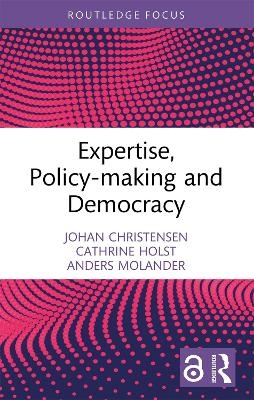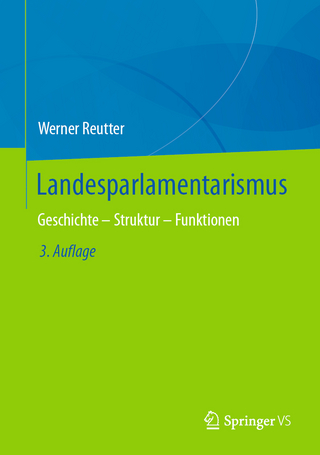
Expertise, Policy-making and Democracy
Seiten
2024
Routledge (Verlag)
978-0-367-61787-5 (ISBN)
Routledge (Verlag)
978-0-367-61787-5 (ISBN)
This book offers a concise and accessible introduction to debates about expertise, policy-making, and democracy.
This book offers a concise and accessible introduction to debates about expertise, policy-making and democracy. It uniquely combines an overview of recent research on the policy role of experts with discussions in political philosophy and the philosophy of expertise. Starting with the fact that well-functioning democracies require experts and expert knowledge, the book examines two types of objections against granting experts a larger role in policy-making: concerns that focus on the nature and limits of expert knowledge, and those that concentrate on tensions between expertization and democracy. With this, the book discusses how expert arrangements can be organized to ensure the epistemic qualities of policies and democratic credentials, at the same time.
The book will be of interest to scholars and students of political theory and democracy, public policy and administration, and to anyone interested in the role of expertise in society.
This book offers a concise and accessible introduction to debates about expertise, policy-making and democracy. It uniquely combines an overview of recent research on the policy role of experts with discussions in political philosophy and the philosophy of expertise. Starting with the fact that well-functioning democracies require experts and expert knowledge, the book examines two types of objections against granting experts a larger role in policy-making: concerns that focus on the nature and limits of expert knowledge, and those that concentrate on tensions between expertization and democracy. With this, the book discusses how expert arrangements can be organized to ensure the epistemic qualities of policies and democratic credentials, at the same time.
The book will be of interest to scholars and students of political theory and democracy, public policy and administration, and to anyone interested in the role of expertise in society.
Johan Christensen is Assistant Professor at the Institute of Public Administration at Leiden University, The Netherlands. Cathrine Holst is Professor at the Department of Sociology and Human Geography at the University of Oslo, Norway. Anders Molander is Professor at the Centre for the Study of Professions at Oslo Metropolitan University, Norway.
Introduction 1. The Fact of Expertise 2. Expertise in Policy-Making 3. Expertise in Democracy 4. Epistemic Worries about Expertise 5. Democratic Worries about Expertise 6. Designing Expert Bodies: A System Perspective
| Erscheinungsdatum | 29.04.2023 |
|---|---|
| Reihe/Serie | Routledge Studies in Governance and Public Policy |
| Verlagsort | London |
| Sprache | englisch |
| Maße | 138 x 216 mm |
| Gewicht | 453 g |
| Themenwelt | Geisteswissenschaften ► Philosophie |
| Sozialwissenschaften ► Politik / Verwaltung ► Politische Systeme | |
| Sozialwissenschaften ► Politik / Verwaltung ► Politische Theorie | |
| Sozialwissenschaften ► Politik / Verwaltung ► Staat / Verwaltung | |
| Sozialwissenschaften ► Politik / Verwaltung ► Vergleichende Politikwissenschaften | |
| ISBN-10 | 0-367-61787-0 / 0367617870 |
| ISBN-13 | 978-0-367-61787-5 / 9780367617875 |
| Zustand | Neuware |
| Haben Sie eine Frage zum Produkt? |
Mehr entdecken
aus dem Bereich
aus dem Bereich
über Alltagsorte des sozialen Zusammenhalts
Buch | Softcover (2024)
transcript (Verlag)
24,00 €
Geschichte - Struktur - Funktionen
Buch | Hardcover (2024)
Springer (Verlag)
139,99 €


